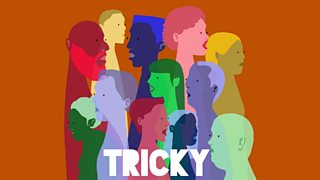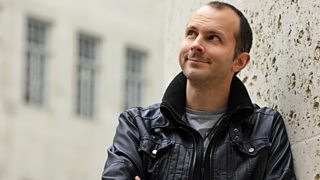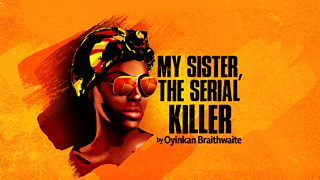Are young people paying the price for lockdown?
For a few hopeful weeks of lockdown, we came together to provide comfort and support to one another, showing solidarity and good will at a time when the nation was unified by uncertainty.
Then lockdown eased, and people tentatively returned to work; meals out were encouraged; shops raised their shutters; holidaymakers holidayed, and friends masked up and attended events together. But the freedom was fleeting and local lockdowns were once more rolled out.
In episode four of Tricky - 'Who is Paying the Price for Lockdown?', games journalist Jordan Middler, visual artist and curator Sekai Machache, poet Iona Lee, and drag queen Lawrence Chaney, discuss whether young people are being unfairly blamed for causing the latest surge in Covid-19 cases.
-
![]()
Listen to Tricky: Who is Paying the Price for Lockdown?
Are young people suffering most from lockdown restrictions?
Missed Opportunities
Young people, aged 16-24, have arguably been the worst hit by the recent rise in unemployment. It is no coincidence that this age group are the most likely to work in industries like hospitality and tourism, which were decimated by lockdown.
Yet young people are missing out in less tangible ways, too. Jordan has noticed that young people have had to forego important rites of passage that generations before them took for granted. He says: “I’ve seen this with younger people who are going to uni for the first time. At the start of the year they were probably thinking, ‘oh, we might miss the end of sixth year, but we’ll still get prom,’ then, ‘OK, we’ve missed prom but we’ll still get Freshers.’ Now, it’s like, ‘When am I actually going to go to uni and get that experience?”.

Arts Attack
This week’s contributors to Tricky all work in creative industries. They unanimously agree that the arts have been devastatingly affected by the fallout from lockdown.
Of the four contributors, two were eligible for self-employment relief. Iona notes that many of those working in creative industries were unable to access support because their incomes had been subsidised by jobs in other industries, such as bar work. As Sekai points out: “It’s the only way that you can actually sustain your practice.” Iona remembers how keen performers were at first to adapt to the challenges of lockdown, yet she wonders when her work as a performer will return to normal: “I have no idea when the job that I love to do is even going to be a job again – if again.”

Who鈥檚 at fault?
The idea that young people should be discouraged from socialising at pubs sits uncomfortably with Iona, as many of her friends work in the hospitality industry. “You want them to go back to the pubs to work, but not to enjoy themselves” she points out, while acknowledging that young people’s work is enabling older people to go out for drinks.
Iona feels that there may be some truth to the claims that younger people have caused the recent spike in virus cases, but not necessarily through reckless behaviour. As she sees it, young people are “more likely to use public transport, they’re more likely to work in service positions, and they’re more likely to live in flats with lots of other young people who also use public transport and work in service positions.”
She feels that there is a great hypocrisy in apportioning blame to this demographic who are constrained by the structures they operate in, as opposed to those who created recent policies and were responsible for dealing with the virus.

The blame game
Young people are not the only group being blamed for the spike in cases. Jordan is concerned by the way in which certain religious minority groups are being scapegoated – he feels that people are simply looking to blame anyone but themselves.
Sekai echoes Jordan’s concerns about the targeting of certain groups based on people’s “biases and prejudices”, and she worries that young people of colour may be disproportionately reported. She understands that some people may have legitimate concerns about the wellbeing of others, but that their actions should be called out “only if it’s about safety. If it’s about getting people in trouble it’s ridiculous.” How far could this go?
Lawrence feels the world is starting to resemble a George Orwell novel. He fears that all too soon, people will be incentivised to report the behaviour of others with the promise of reward. “It’s like, ‘rat them out and it will benefit you,’” he says, “Is this really what the future holds?”
Surely no demographic can be held entirely responsible for the spread of Covid-19, which is unlikely to abate without a vaccination, and ultimately most people are acting in good faith to do the best they can in the circumstances.
Blaming others will lead to animosity, division and an unwillingness to cooperate, but it won’t quell the spread of disease. As Iona says: “We would do well to understand that everyone’s going through this new experience together, and to remember to be as kind as possible.”

More to discover
-
![]()
Tricky
Tricky questions of right, wrong and in-between.
-
![]()
More or Less
Explaining the numbers and statistics used in political debate, the news and everyday life
-
![]()
Grounded with Louis Theroux
Louis is using lockdown to track down some high-profile people he's been longing to talk to.
-
![]()
My Sister the Serial Killer by Oyinkan Braithwaite
When Korede's dinner is interrupted one night by a distressed call from her sister, Ayoola, she knows what's expected of her.




